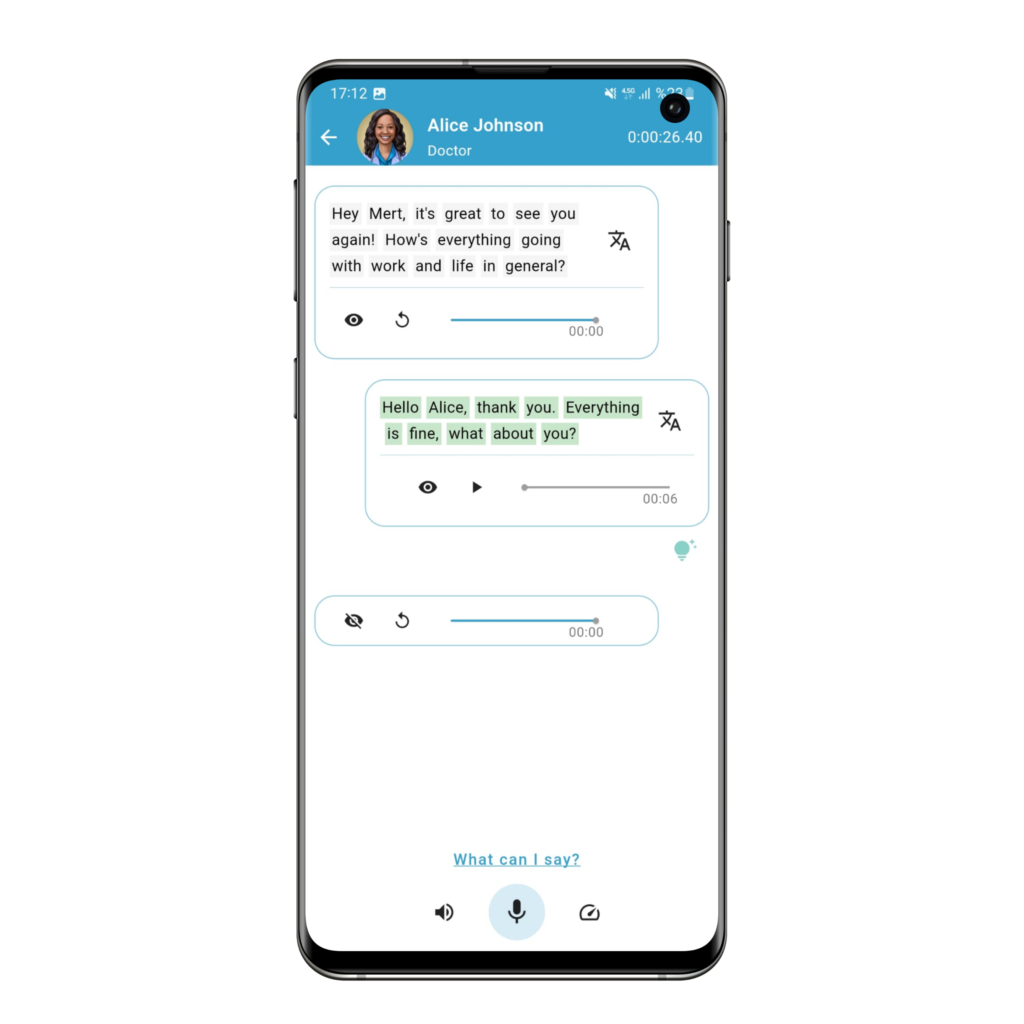Looking to improve your spoken English skills in a safe and judgment-free environment? Download Tutor AI today!
Hello Lovely Readers, I am Elodie Bellerose. Not too long ago, in my “Building Vocabulary for Better Speaking” blog post, we discussed the importance of a rich and varied vocabulary in improving your English speaking skills. Today, we’re going to delve deeper into the subject and share some more effective strategies to expand your vocabulary, with a special focus on speaking.
The first strategy, and perhaps the most obvious one, is reading. But rather than just reading passively, you should try to do it actively. When you come across an unfamiliar word, don’t just skip it – look up its meaning, understand its context, and try using it in a sentence. This will rev up your vocabulary engine and get you used to implementing new vocabulary into your spoken English.
Another approach is to make vocabulary learning a daily habit. Setting aside ten minutes each day to learn a new word can be a game-changer. Make it fun by using vocabulary apps that provide a ‘word of the day’ feature. Write the new word down, pronounce it, and make your own sentences with it. This daily routine will slowly but surely build up your vocabulary repertoire.
Active listening is also a powerful tool for vocabulary expansion. Listen to English podcasts, watch English movies, and engage in conversations with native speakers whenever possible. These activities immerse you in the language, enabling you to learn new words in their natural context.
Some language learners find flashcards incredibly handy. They allow you to break down the colossal task of learning a new language into more manageable chunks. Write a word on one side and its meaning on the other. Review these flashcards regularly and try to use the words in your daily conversation.
Engaging in English-speaking activities is a practical way to enhance your vocabulary. Whether it’s participating in a book club, or joining an English-speaking discussion group, or even enrolling in a public speaking workshop – these activities not only help you learn new words but also provide an excellent platform to practice your speaking skills.
Visual learning plays a significant role in vocabulary enhancement. When learning a new word, try to form a mental image of what that word represents. This mental image can help you recall the word easily when you need it.
‘Use it or lose it’ – that’s the principle when it comes to vocabulary. Regularly circulating new words into your conversations will help you remember them. If you don’t use the words you learn, you’re likely to forget them.
Let’s not forget about the importance of context. Learning words in isolation can be challenging. However, understanding a word within a context can not only make it easier to remember but also helps you understand how and when to use it.
Word games like Scrabble or crosswords are also useful in building vocabulary. They engage your brain, which aids in memory retention, and make learning more enjoyable. Plus, there’s always that sense of achievement when you score points with a high-value word.
Practicing writing can be beneficial in improving your vocabulary as well. Start by writing small phrases and gradually move on to sentences, then to paragraphs. Remember, the primary aim here is to put your new vocabulary into practice.

One technique that I’ve personally found to be effective is the use of a thesaurus. When writing or speaking, try to replace frequently used words with their synonyms. This will not only enrich your language but also add variety to your conversations.
Another underrated strategy is learning word roots. Understanding the roots of words can help you guess the meaning of new words and can add a depth to your vocabulary learning.
And finally, be patient and consistent. Learning a new language is akin to running a marathon, not a sprint. It requires time, dedication, and most importantly, practice. So, practice as much as you can, and don’t feel discouraged by any mistakes along the way. They are valuable stepping stones on your path to enriching your vocabulary.
Remember, expanding your vocabulary is not an overnight process. It’s a journey. Enjoy the process and take pride in every new word you learn and use. Keep adding those bricks to your language wall, and before you know it, you’ll be more fluent and confident. Happy Learning!


